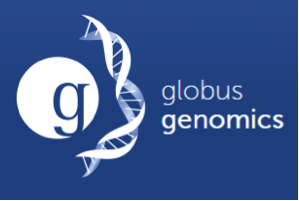(SW4) The Galaxy Platform for Multi-Omic Data Analysis and Informatics
- Organizers:
- Pratik Jagtap and Tim Griffin, University of Minnesota
- Instructors:
- Tim Griffin, Dave Clements, Candace Guerrero, Getiria Onsongo and Pratik Jagtap
- Workshop content:
- The course will include a basic introduction to Galaxy framework and its use for ‘omics’ data analysis. The morning session will include a hands-on session on the use of Galaxy followed by a tutorial for users to understand the basic use of Galaxy platform in proteomics. Use of open-source software tools will be discussed in this session. Sharing of datasets, workflows and histories will also be discussed, giving the attendees a familiarity with Galaxy web-based user interface and the basics of its operation. In the afternoon, the workshop will cover use of analytical workflows to generate RNASeq-derived protein databases and/or use of publically available databases. The use and understanding of modules for analytical workflows for proteogenomic analysis to identify novel proteoforms will also be discussed.
- Galaxy has been gaining strength as a tool for proteomic and multi-omic data analysis applications. The platform provides a new opportunity for core facilities and individual researchers seeking solutions for complex data analysis challenges across the ‘omics domains. Numerous groups around the world have published papers describing the use of the platform for proteomic and multi-omic data analysis.
- Workshop Schedule:
- Saturday February 20, 2016
- 8:00am-8:30am
- Introduction to Galaxy Platform and multi-omic studies. (Tim Griffin)
- 8:30am-10:00am
- Galaxy Tutorial – Basics of Data Analysis using Galaxy platform. (Dave Clements)
- 10:30am – 12:00pm
- Hands-on session for proteomics data analysis using Galaxy. (Candace Guerrero)
- 1:00pm – 1:30pm
- Introduction to multi-omics: proteogenomics and metaproteomics (Pratik Jagtap)
- 1:30pm-3:00pm
- Proteogenomic analysis using Galaxy framework I: RNASeq data and sequence database generation. (Getiria Onsongo)
- 3:30pm – 4:30pm
- Proteogenomic analysis using Galaxy framework II: Database search, filtering and visualization. (Pratik Jagtap)
- Workshop goals:
- Introduce the Galaxy framework as a solution for data analysis across ‘omics’ domains
- Provide hands-on experience to attendees in using Galaxy
- Demonstrate use of Galaxy for a proteogenomic analysis (RNA-seq and proteomic integrative analysis)
- Lay the foundation for attendees to implement Galaxy at their own facility or institution to meet ‘omics’ data analysis needs (either specific to one domain or for multi-omics)
- Who Should Attend:
-
Core facility managers and personnel, as well as biological researchers attending the conference interested in finding solutions to the ‘omic data analysis challenges. Also bioinformatics software developers interested in learning more about Galaxy as a resource to deploy and publish their domain-specific software. (Published references: z.umn.edu/galaxypreferences)
Workshop would be targeted to an audience of mixed expertise. Attendees should have a working knowledge of some ‘omics domain (genomics, proteomics etc). We will provide a brief background on the data types covered in the workshop (e.g. RNASeq, mass spectrometry-based proteomics data). No prior knowledge or experience with Galaxy would be necessary.
- Attendees should have access to a personal laptop.
Testimonials from past workshops on Galaxy for multi-omics:
“This is the best workshop I have ever attended. The GalaxyP folks gave great background to proteomics and just did a great job of going through their excellent suite of tools and workflows.” – Biological Researcher, John Hopkins University, Baltimore, Maryland.
“Hit of the day! Really nice intro to MS proteomics for non-proteomics people.” – Post-doctoral computational researcher, University of Rennes, France.


















